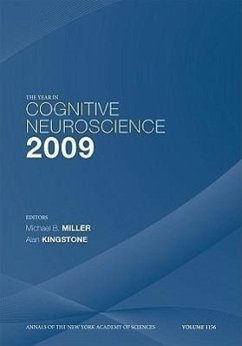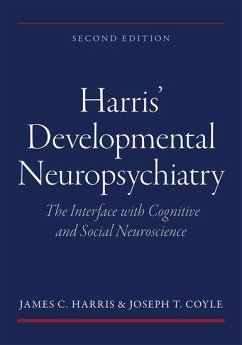
Psychiatry as Cognitive Neuroscience Philosophical perspectives (Paperback)
Versandkostenfrei!
Versandfertig in 1-2 Wochen
104,99 €
inkl. MwSt.

PAYBACK Punkte
52 °P sammeln!
Neuroscience has long had an impact on the field of psychiatry, and over the last two decades, with the advent of cognitive neuroscience and functional neuroimaging, that influence has been most pronounced. However, many question whether psychopathology can be understood by relying on neuroscience alone, and highlight some of the perceived limits to the way in which neuroscience informs psychiatry. Psychiatry as Cognitive Neuroscience is a philosophical analysis of the role of neuroscience in the study of psychopathology. The book examines numerous cognitive neuroscientific methods, such as ne...
Neuroscience has long had an impact on the field of psychiatry, and over the last two decades, with the advent of cognitive neuroscience and functional neuroimaging, that influence has been most pronounced. However, many question whether psychopathology can be understood by relying on neuroscience alone, and highlight some of the perceived limits to the way in which neuroscience informs psychiatry. Psychiatry as Cognitive Neuroscience is a philosophical analysis of the role of neuroscience in the study of psychopathology. The book examines numerous cognitive neuroscientific methods, such as neuroimaging and the use of neuropsychological models, in the context of a variety of psychiatric disorders, including depression, schizophrenia, dependence syndrome, and personality disorders. Psychiatry as Cognitive Neuroscience includes chapters on the nature of psychiatry as a science; the compatibility of the accounts of mental illness derived from neuroscience, information-processing, and folk psychology; the nature of mental illness; the impact of methods such as fMRI, neuropsychology, and neurochemistry, on psychiatry; the relationship between phenomenological accounts of mental illness and those provided by naturalistic explanations; the status of delusions and the continuity between delusions and ordinary beliefs; the interplay between clinical and empirical findings in psychopathology and issues in moral psychology and ethics. With contributions from world class experts in philosophy and cognitive science, this book will be essential reading for those who have an interest in the importance and the limitations of cognitive neuroscience as an aid to understanding mental illness.












